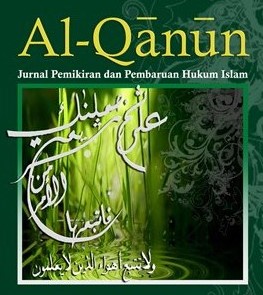Sejarah Sistem Pemerintahan dan Kekuasaan Eksekutif di Indonesia
DOI:
https://doi.org/10.15642/alqanun.2023.26.2.167-180Abstract
To understand a legal system, the first thing that must be comprehended is a consensus regarding the history or background of the system's existence. In Indonesia's government system, which adheres to a presidential system, many changes occurred before the amendment to the 1945 Constitution. The government system in Indonesia has shifted from a presidential system where the president is the country's highest leader to a parliamentary system where a prime minister is the head of government. Then, it retook its original feature from a parliamentary system to a presidential system where full command rests with the president as the leader of the state and government. The role of electoral politics was far behind the changes in the dynamics of the legal system. The actual context of government, in this case, the executive, is much simplified and reorganized regarding the existing legal political system. The president, who is part of the key to the highest power in the executive area, oversees various public positions such as ministers and other areas of the executive area.
Downloads
References
Akmal, Diya Ul. “Politik Reformasi Hukum: Pembentukan Sistem Hukum Nasional Yang Diharapkan.” Jurnal Hukum dan Keadilan 8, no. 1 (Maret 2021).
Anggyamurni, Virna Septia, Yusya Rugaya Salsabilah, dan Ewaldo Duta Salsa. “Konstitusi dalam Praktik Ketatanegaraan di Indonesia.” Al-Qānūn: Jurnal Pemikiran dan Pembaharuan Hukum Islam 23, no. 2 (Desember 2020).
Ardilafiza. “Kedudukan dan Karakteristik Peraturan Menteri dalam Melaksanakan Urusan Pemerintahan Menurut Undang-undang Dasar Negara Republik Indonesia Tahun 1945.” Jurnal Legislasi Indonesia 19, no. 8 (September 2022).
Asshiddiqie, Jimly. Perkembangan dan Konsolidasi Lembaga Negara Pasca Reformasi. Jakarta: Sinar Grafika, 2012.
Budianto, Aziz. “Pembangunan Politik Hukum Pasca Reformasi di Indonesia.” Jurnal Lex Librium 3, no. 1 (Desember 2016).
Budiardjo, Miriam. Dasar-dasar Ilmu Politik. Jakarta: Gramedia, 2008.
Daman, Rozikin. Hukum Tata Negara. Jakarta: Rineka Cipta, 1984.
Haudi. Pengantar Ilmu Pemerintahan. Solok: CV Insan Cendekia Mandiri, 2021.
Ilmar, Anwar. “Demokrasi Terpimpin Dalam Pemikiran dan Praktik Politik.” Jurnal Polinter 4, no. 1 (Maret 2018).
Labolo, Muhadam. Memahami Ilmu Pemerintahan: Suatu Kajian, Teori, Konsep dan Pengembangannya. Depok: Rajagrafindo Persada, 2014.
Misbahuddin. “Memorandum di Masa Pemerintahan Abdurrahman Wahid dalam Perspektif Hukum Tata Negara Islam.” Al-Qānūn: Jurnal Pemikiran dan Pembaharuan Hukum Islam 22, no. 1 (Juni 2019).
Mubarok, Nafi’. “Sistem Pemerintahan di Negara-negara Rumpun Melayu.” SOSIO YUSTISIA: Jurnal Hukum dan Perubahan Sosial 1, no. 1 (Mei 2020).
Muwahid. “Sistem Ketatanegaraan Indonesia Pasca Amandemen UUD 1945.” Al-Qānūn: Jurnal Pemikiran dan Pembaharuan Hukum Islam 13, no. 2 (Desember 2010).
Suny, Ismail. Pergeseran Kekuasaan Eksekutif. Jakarta: Aksara Baru, 1986.
Yani, Ahmad. “Sistem Pemerintahan Indonesia: Pendekatan Teori Dan Praktek Konstitusi Undang-undang Dasar 1945.” Jurnal Legislasi Indonesia 15, no. 2 (Juli 2018).





